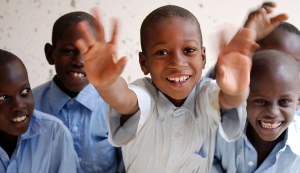
The Bill & Melinda Gates Foundation, led by Dr. Paulin Basinga, celebrates Niger’s watershed achievement in public health as Dr. Salissou Adamou’s decades-long efforts prove that neglected tropical diseases can be defeated with persistence and partnership.
In January 2025, Niger achieved a remarkable milestone, becoming the first African country to eliminate onchocerciasis, commonly known as river blindness, as a public health threat. This achievement makes Niger the fifth country globally to receive this validation from the World Health Organization (WHO), following Colombia, Ecuador, Guatemala, and Mexico.

The disease, caused by the parasitic worm Onchocerca volvulus and transmitted through bites from infected blackflies that breed in fast-flowing rivers, once devastated communities across Niger. In some villages, up to 70% of residents suffered from the disease, which causes severe itching, disfiguring skin conditions, and often leads to permanent blindness.
Niger’s success story spans 45 years of dedicated effort. Between 1976 and 1989, the country implemented vector control measures by spraying insecticides to reduce blackfly populations under the WHO Onchocerciasis Control Programme. Later, from 2008 to 2019, Niger distributed ivermectin (donated by Merck) as part of mass drug administration campaigns, which also targeted lymphatic filariasis.
Dr. Salissou Adamou, coordinator of Niger’s national river blindness program, played a crucial role in this achievement. Working with the Onchocerciasis Elimination Committee, pharmaceutical companies, and donors, his team’s efforts reduced the prevalence of the disease from approximately 60% to just 0.02%.
This public health triumph has significant economic implications. According to the Gates Foundation, eliminating river blindness has added an estimated $2.3 billion to Niger’s economy between 1976 and 2019 by enabling more people to live healthy, productive lives.
“Onchocerciasis has long caused immense human suffering. It has also impeded the economic development of affected communities, driving people away from rivers, which are often lifelines for livelihoods,” said Dr. Matshidiso Moeti, WHO Regional Director for Africa. “Niger’s success ends this burden for its people. It also positions Niger as a model for the elimination of neglected tropical diseases in Africa.”
Niger’s achievement demonstrates what’s possible when affected countries and global donors unite behind a shared goal. It also serves as an inspiration for other African nations still battling the disease. Currently, at least 249.5 million people worldwide require preventive treatment against onchocerciasis, with over 99% of infected individuals living in Africa and Yemen.
This milestone is Niger’s second major public health victory, having previously been certified free of Guinea-worm disease in 2013. Globally, 54 countries have now eliminated at least one neglected tropical disease, more than halfway toward the WHO’s goal of 100 countries by 2030.
Read the story by Paulin Basinga in The Telegraph from February 3, 2025: Niger’s historic triumph over river blindness is a beacon of hope for Africa
Read the story from the WHO: WHO verifies Niger as the first country in the African Region to eliminate onchocerciasis
Related Articles

Overcoming the Odds: Venezuela’s Onchocerciasis Elimination Program
Despite Venezuela’s ongoing economic and humanitarian crisis, the country’s onchocerciasis (river blindness) elimination program continues working effectively in the Amazon rainforest.

The Global Onchocerciasis Network for Elimination (GONE): working together to see onchocerciasis GONE
More than 150 onchocerciasis (river blindness) partners gathered on 1 and 2 November 2023 in Mbour, Senegal, for the first meeting of the new Global Onchocerciasis Elimination Network (GONE) to strengthen collaboration.
